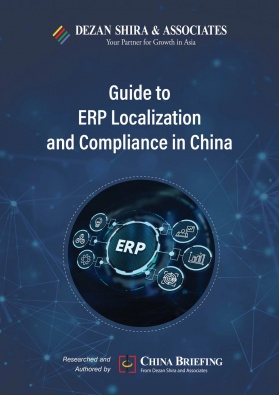China-Greece Economic Relations: Trade and Investment Highlights
- Since the establishment of diplomatic relations in 1972, China and Greece have deepened their partnership across trade, investment, and cultural exchange. Greece has emerged as a crucial European gateway for Chinese investments, particularly through its pivotal role in China’s Belt and Road Initiative (BRI).
- China’s investment in the Port of Piraeus, led by COSCO, has transformed the port into a major Mediterranean transport hub. With container capacity growing from 1.5 million TEUs to 6.2 million TEUs, this investment has generated significant economic benefits for Greece, including job creation and increased revenues.
- Greece’s exports to China in 2023 were led by sectors like salt, sulphur, and machinery, while China remains one of Greece’s top trading partners. Both countries continue to explore opportunities for collaboration in energy, shipping, and renewable technologies.
Since the establishment of diplomatic ties in 1972, China and Greece have cultivated a dynamic and multifaceted partnership, particularly in the areas of trade, investment, and cultural exchange. Over the past two decades, this relationship has deepened significantly, with Greece playing a pivotal role in China’s Belt and Road Initiative (BRI) and emerging as a key European gateway for Chinese investments, particularly in infrastructure and shipping. China’s investment in Greece’s Piraeus Port, among the largest port investments in Europe, symbolizes the growing economic interdependence between the two nations.
Economically, China is one of Greece’s most important trading partners, and the two countries have benefited from strategic partnerships in sectors such as energy, telecommunications, and shipping. Chinese state-owned enterprises, including COSCO, have led transformative projects.
Meanwhile Greek shipping firms play a critical role in China’s maritime trade, transporting a significant share of its energy imports. Greece, in turn, has leveraged these ties to attract foreign direct investment (FDI) and recover from the economic downturn it experienced during the 2008 financial crisis.
In this article we delve into the evolving economic relationship between China and Greece, analyzing key investments, strategic collaborations, and the broader political implications of their growing ties within the framework of the BRI.
Opportunities for Greek companies in China
Greek companies have promising opportunities in China, particularly in sectors that align with China’s growing consumer demand and industrial transformation. The expanding Chinese middle class creates a significant market for Greek products, especially in the food and beverage industry, where Greek olive oil, wine, and dairy products like feta cheese are increasingly popular. Tourism is another major sector, as China’s rising outbound tourism presents opportunities for Greek travel companies to attract Chinese tourists to Greece and offer travel services in China.
Additionally, shipping and logistics offer opportunities for Greek firms, given Greece’s strong maritime industry and China’s need for efficient transport solutions, especially within the Belt and Road Initiative framework. Furthermore, the renewable energy sector presents a growing field, with China seeking global partnerships in green technology, where Greek companies could provide expertise in solar and wind energy.
Finally, technology and innovation partnerships, particularly in areas like clean tech, smart cities, and agri-tech, could further enhance cooperation between Greek firms and Chinese industries, tapping into China’s focus on modernization and sustainability.
China-Greece bilateral trade
Overall, trade between China and Greece to grow, with China remaining Greece’s third largest trading partners. However, Greek exports to China still represent a small fraction of the country’s total imports, revealing considerable potential for expanding Greek products’ presence in the Chinese market.
According to the United Nations COMTRADE database, in 2023, Greece’s main exports to China were led by salt, sulphur, earth, stone, and cement, valued at US$113.20 million, followed by US$70.76 million in ores, slag, and ash. Machinery and nuclear reactors contributed US$41.19 million, while pharmaceutical products accounted for US$40.50 million. Additionally, mineral fuels and oils made up US$30.33 million, reflecting Greece’s key export sectors to China.
| Main Products Exported from Greece to China, 2023 | |
| Product category | Value (US$) million |
| Salt, sulphur, earth, stone, plaster, lime and cement | 113.20 |
| Ores slag and ash | 70.76 |
| Machinery, nuclear reactors, boilers | 41.19 |
| Pharmaceutical products | 40.50 |
| Mineral fuels, oils, distillation products | 30.33 |
| Source: COMTRADE, 2024 | |
On the import side, Greece’s imports from China in 2023 were led by electrical and electronic equipment, valued at US$1.79 billion, followed by US$1.63 billion in machinery and nuclear reactors. Furniture, lighting signs, and prefabricated buildings contributed US$0.35 billion, while paper and paperboard products accounted for US$0.34 billion. Additionally, toys, games, and sports requisites made up US$0.31 billion, reflecting Greece’s diverse import portfolio from China.
| Main Products Imported from China to Greece, 2023 | |
| Product category | Value (US$) million |
| Electrical, electronic equipment | 1.79 |
| Machinery, nuclear reactors, boilers | 1.63 |
| Furniture, lighting signs, prefabricated buildings | 0.35 |
| Paper and paperboard, articles of pulp, paper and board | 0.34 |
| Toys, games, sports requisites | 0.31 |
| Source: COMTRADE, 2024 | |
China’s investment in Greece spotlight: Piraeus Port
China’s investment in Greece, particularly through COSCO Shipping’s involvement in the Port of Piraeus, has transformed the once-struggling harbor into a major transport hub connecting Asia, Europe, and Africa.
Since COSCO acquired a stake in the port in 2010, Piraeus has seen its container capacity grow from 1.5 million TEUs to 6.2 million TEUs, ranking it among the top 40 largest ports globally. This investment has not only revitalized Piraeus but has also attracted multinational companies like ZTE and Hewlett-Packard, further boosting Greece’s logistics and trade sectors.
The financial impact has been significant, with the Piraeus Port Authority posting record revenues of €194.6 million in 2022, a 26.2 percent increase from the previous year. COSCO’s €600 million investment has also generated thousands of jobs and supported local education and culture initiatives. As a flagship project under China’s BRI, the port has become a symbol of successful collaboration.
Trade and investment treaties
China-Greece bilateral investment agreement
In 1992, China and Greece signed a bilateral investment treaty (BIT) to promote and protect mutual investments between the two nations. The agreement aims to enhance economic cooperation by establishing favorable conditions for investors, ensuring a stable and transparent investment environment.
Key provisions of the China-Greece BIT include:
- Investment protection: The BIT ensures protection against expropriation, nationalization, and discriminatory practices, guaranteeing fair treatment of investments. In cases of expropriation, compensation must reflect the fair market value of the investment at the time of the expropriation, and must be promptly paid in a freely convertible currency.
- Fair and equitable treatment: Investors from both China and Greece are guaranteed treatment no less favorable than that accorded to domestic investors or investors from third countries. This provision ensures non-discriminatory treatment in the establishment, management, maintenance, and enjoyment of investments.
- Dispute resolution mechanisms: The treaty provides multiple mechanisms for resolving investment-related disputes, including negotiation, mediation, and international arbitration. An investor-state dispute settlement (ISDS) clause allows investors to bring disputes before international bodies, such as the International Centre for Settlement of Investment Disputes (ICSID) or under the United Nations Commission on International Trade Law (UNCITRAL) rules.
The agreement also facilitates the free transfer of investment-related funds, including returns, profits, and compensation, in a freely convertible currency without undue delay.
China-Greece double taxation avoidance agreement
The double taxation agreement (DTA) between China and Greece was signed on April 24, 2015, and came into effect on January 1, 2016. This agreement aims to eliminate double taxation on income and capital, thereby promoting trade and investment between the two nations.
The DTA covers various income and capital taxes imposed by both countries. In China, it pertains to:
- The Chinese individual income tax (IIT); and
- The Chinese corporate income tax (CIT).
In Greece, the agreement applies to:
- The Greek income tax on natural persons;
- The Greek corporate income tax; and
- Any other taxes on income and capital imposed by Greece.
One of the notable features of the DTA is the introduction of reduced withholding tax rates on passive income. Specifically:
- Dividends: Generally taxed at a reduced rate of 5 percent if the beneficial owner holds at least 25 percent of the capital of the paying company.
- Interest: Generally taxed at a reduced rate of 10 percent, with exemptions for certain government-related entities.
- Royalties: Generally taxed at a reduced rate of 10 percent.
The agreement also addresses capital gains taxation, stipulating that Greece may tax gains derived from the sale of shares in a Chinese tax resident enterprise (TRE) if the Greek investor holds a substantial interest in the company.
Additionally, the DTA includes provisions to prevent tax avoidance through measures like the exchange of information between tax authorities and definitions related to “permanent establishment” (PE), which helps clarify the tax obligations of businesses operating in both countries.
Overall, the DTA enhances economic relations between China and Greece, providing a more stable tax environment for investors and businesses engaged in cross-border activities.
Multilateral treaties
China and Greece, both members of the WTO, are signatories to various multilateral treaties concerning trade and investment. These include:
- TRIPS, which mandates WTO members to extend intellectual property rights to owners in any member state. It incorporates a most-favored-nation (MFN) clause, ensuring equal treatment for IP rights protection across all member countries. Additionally, it provides mechanisms for dispute resolution and compensation.
- The Agreement on Trade-Related Investment Measures (TRIMs), which prohibits the implementation of investment measures that restrict trade between members. This includes measures like local content requirements, which mandate the use of locally-produced goods or services by companies operating in a market.
- GATS, which grants most-favored-nation status to service providers of any WTO member, excluding governmental services such as social security, public health, education, and certain services related to air transport.
About Us
China Briefing is one of five regional Asia Briefing publications, supported by Dezan Shira & Associates. For a complimentary subscription to China Briefing’s content products, please click here.
Dezan Shira & Associates assists foreign investors into China and has done so since 1992 through offices in Beijing, Tianjin, Dalian, Qingdao, Shanghai, Hangzhou, Ningbo, Suzhou, Guangzhou, Haikou, Zhongshan, Shenzhen, and Hong Kong. We also have offices in Vietnam, Indonesia, Singapore, United States, Germany, Italy, India, and Dubai (UAE) and partner firms assisting foreign investors in The Philippines, Malaysia, Thailand, Bangladesh, and Australia. For assistance in China, please contact the firm at china@dezshira.com or visit our website at www.dezshira.com.
- Previous Article China-Brazil Economic Ties: Trade, Investment, and Opportunities
- Next Article China-Kazakhstan: Bilateral Trade and Investment Profile



























